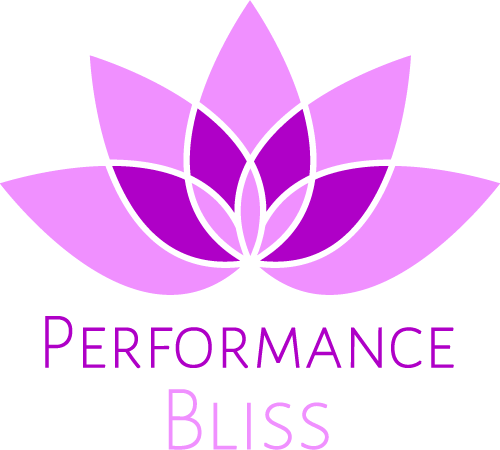The year-end review is more than a routine evaluation—it’s an opportunity to uncover hidden potential within your team. With the right year end review questions, managers can reveal untapped talent, identify growth opportunities, and better understand employees’ career aspirations.
In this article, we’ll explore how asking the right year-end review questions can help you discover your employees’ potential and guide their development. By unlocking these insights, you can foster a stronger, more motivated team.
To streamline the review process and ask the right questions, consider using PerformanceBliss, a tool designed to make employee evaluations more insightful and effective.
How to Write Year-End Review Questions That Uncovers Aspirations
One of the most powerful aspects of the year-end review is its ability to uncover employees’ aspirations. Many employees may have skills, interests, or ambitions that aren’t immediately apparent in their day-to-day work. By asking thoughtful, open-ended year end review questions, managers can learn more about what truly motivates their team.
Here’s how to write a year-end review that encourages employees to share their aspirations:
- Ask About Long-Term Career Goals: Questions like “Where do you see yourself in five years?” or “What are your long-term career aspirations?” encourage employees to think beyond their current roles. This helps you identify areas where they may want to grow.
- Explore Interests Outside of Their Current Role: Ask, “Are there any skills or areas outside of your current responsibilities that you’d like to explore?” Employees may have hidden talents or interests that could benefit the company in unexpected ways.
- Discuss Challenges and Opportunities: By asking, “What challenges have you faced this year, and how did you overcome them?” you not only assess performance but also learn about resilience and problem-solving skills that may not have been fully recognized.
When employees feel comfortable sharing their goals, it becomes easier for managers to align their aspirations with the company’s needs, creating a path for growth.
PerformanceBliss allows managers to structure these conversations, helping uncover employee potential through carefully crafted review questions.
How to Write a Year-End Review That Identifies Skills Gaps
In addition to discovering untapped potential, year-end reviews are crucial for identifying skills gaps within your team. Targeted questions can help you pinpoint areas where employees may need additional training or development.
Here’s how to write a year-end review that identifies skills gaps:
- Ask About Learning Experiences: Questions like, “What new skills have you developed this year?” or “Are there areas where you’d like to improve?” help employees reflect on their growth and identify where they still need development.
- Assess Performance Metrics: Questions that focus on specific job responsibilities, such as “Have you met your performance targets this year?” or “What areas do you think you could improve in?” provide valuable insights into whether employees have the skills needed to meet their objectives.
- Focus on Collaboration and Soft Skills: Many skills gaps are not technical but rather relate to communication, leadership, or teamwork. Ask, “How do you feel about your ability to collaborate with others?” or “What leadership opportunities would you like to explore?” These questions reveal whether there are areas for soft skill improvement.
Identifying skills gaps during the review process allows you to address them proactively, ensuring your team has the tools and training they need to succeed.
With PerformanceBliss, you can track individual performance metrics and feedback, making it easier to spot gaps and create targeted development plans.
How to Write a Year-End Review That Encourages Honest Reflection
For a year-end review to be truly effective, employees need to feel comfortable being honest about their experiences and challenges. Asking questions that encourage reflection can help reveal hidden insights that may otherwise go unnoticed.
Here’s how to write a year-end review that promotes honest reflection:
- Ask About Challenges and Obstacles: “What challenges did you face this year?” or “What was your biggest obstacle, and how did you overcome it?” allow employees to reflect on difficulties they’ve faced. This reveals how they handle adversity and whether there are areas where they need support.
- Encourage Self-Evaluation: Asking employees to evaluate their own performance, with questions like, “What do you think went well this year, and where could you improve?” helps uncover self-awareness and growth potential.
- Discuss Mistakes and Learning Opportunities: “What mistakes did you make this year, and what did you learn from them?” encourages employees to see setbacks as opportunities for growth. This also opens the door for you to offer constructive feedback.
By creating an environment where employees feel safe discussing both successes and challenges, managers can gain deeper insights into their team’s strengths and areas for improvement.
PerformanceBliss makes it easy to collect self-evaluations and track employee reflections, helping managers understand where to focus development efforts.
Leveraging Year-End Review Insights to Design Training Plans
Once you’ve gathered insights from the year-end review, it’s time to put them to use. By identifying hidden skills, aspirations, and development areas, you can design personalized training plans that address both individual and team needs.
Here’s how to use year-end review insights to design effective training plans:
- Create Development Paths Based on Aspirations: If an employee has expressed interest in leadership or a new area of expertise, create a training plan that aligns with these goals. For example, you might enroll them in leadership training or assign them a mentor within the company.
- Address Skills Gaps with Targeted Training: If a year-end review revealed a gap in technical skills or soft skills, develop a training plan that focuses on closing those gaps. This could involve online courses, workshops, or job shadowing opportunities.
- Set Measurable Development Goals: Ensure that training plans are tied to measurable outcomes. For example, if an employee is working on improving project management skills, set a goal to complete a specific project or certification by a certain date.
- Provide Ongoing Support and Feedback: Training plans should not be set in stone. As employees progress, check in regularly to assess their development and make adjustments as needed. Use year-end review insights to continuously refine their growth plan.
By leveraging the insights gained from year-end reviews, managers can create training plans that not only address current needs but also prepare employees for future opportunities.
With PerformanceBliss, managers can easily design, track, and adjust personalized training plans, ensuring that employee development remains a top priority.
How to Write a Year-End Review That Promotes Growth
The ultimate goal of the year-end review is to promote growth—both for the individual and the company. By asking the right questions, providing constructive feedback, and designing personalized development plans, managers can unlock their team’s potential and set the stage for future success.
Here’s how to write a year-end review that promotes growth:
- Focus on Long-Term Development: Ask questions that encourage employees to think beyond their current role. For example, “What skills do you want to develop in the next year?” or “How can we support your long-term career goals?”
- Encourage Ownership of Growth: Help employees take ownership of their development by setting actionable goals during the review. Ask, “What steps will you take to achieve your goals?” or “What resources do you need to succeed?”
- Provide Constructive, Actionable Feedback: Offer feedback that is specific and actionable, focusing on how the employee can grow. For example, instead of saying, “Improve your communication,” provide concrete steps: “Work on clear communication during meetings by summarizing key points.”
By making growth a key focus of the year-end review, managers can help employees develop the skills and confidence needed to excel in their roles.
PerformanceBliss makes tracking progress and providing ongoing feedback easy, ensuring that growth remains a continuous process.
Conclusion: Unlocking Potential with the Right Year-End Review Questions
The year-end review is a powerful tool for uncovering hidden potential within your team. By asking the right questions, managers can reveal aspirations, identify skills gaps, and design personalized training plans that promote long-term growth.
For a more streamlined and effective review process, PerformanceBliss offers comprehensive tools to track progress, gather feedback, and set meaningful goals. Unlock your team’s potential and drive success with insightful year-end reviews using PerformanceBliss.
👇 Related Reads from Performance Bliss
If you found this helpful, you might also like:
- 🔗 How Friendly, Constructive Feedback Builds High-Performing Teams
- 🔗 Debunking Common Myths About Performance Review Software
- 🔗 Calculating the ROI of Modern Performance Review Software
- 🔗 Building a Feedback Culture in the Workplace
- 🔗 Performance Review Best Practices for 2025 and Beyond
- 🔗 The Ultimate Guide to Developer Performance Reviews


